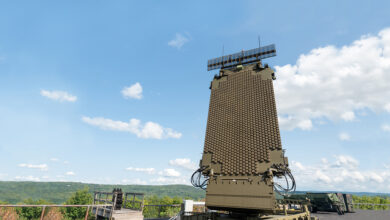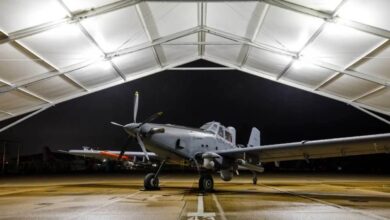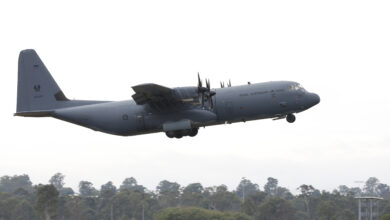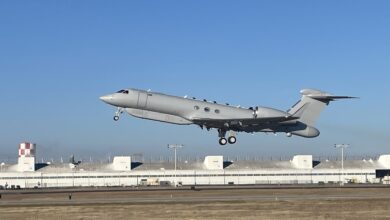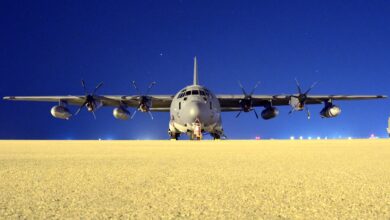USAF AWACS Updates EW Software While Airborne for First Time
The US Air Force’s E-3G airborne warning and control system aircraft, or AWACS, updated its electronic warfare (EW) software in air for the first time.
The AWACS aircraft collected the EW data through its electronic support measures system and then transmitted it to the reprogramming center at Eglin Air Force Base, Florida, using a “beyond line-of-site satellite communications system.”
The center then processed, analyzed, and refined the data within an hour and transmitted it back to the aircraft, which was also a first.
Used Upgraded Systems
The Boeing aircraft used an “upgraded satellite communications system called Internet Protocol Enabled Communications or IPEC, in conjunction with the more modern and flexible mission computing system” for the proof-of-concept test over central Texas.
“While most airborne EW systems provide self-protection, the primary purpose of the E-3G’s ESM system is to provide situational awareness, combat identification, and threat warning for the rest of the assets in theater,” 605th TES, Det1 air battle manager, Maj. Jesse Snook said.
“Modern advanced radars are increasingly digital and can adapt faster than ever before, and the mission data update process needs to adapt along with it,” he added.
Faster Process
The entire process of data transmission and software update — called Airborne Cooperative EW Integrated Reprogrammable Exchange (ACEWIRE) — is the first step to speed up the “antiquated reprogramming processes for the E-3G and the assets under its control,” the service explained.
The aircraft demonstrated its ability to adapt to new threats and to assist a quicker data reprogramming keeping an eye on the future battles.
“The E-3G has to continuously evolve and find ways to adapt legacy technology for the future fight, and ACEWIRE is a great example,” said Lt. Col. Dameion Briggs, 605th TES, Det 1 commander, Tinker AFB, Oklahoma.
“The next step is to build on this concept within the E-3G community and work with other airborne platforms to use IPEC and existing datalinks to provide in-air updates for other platforms.”






